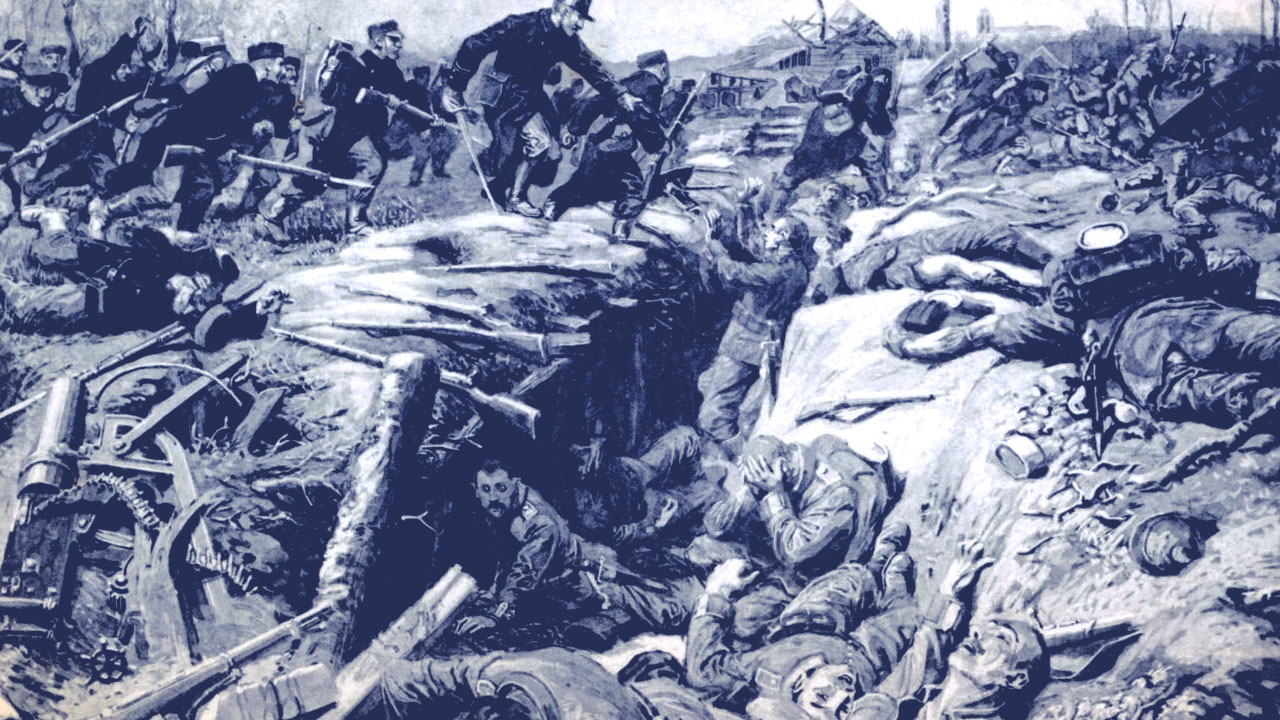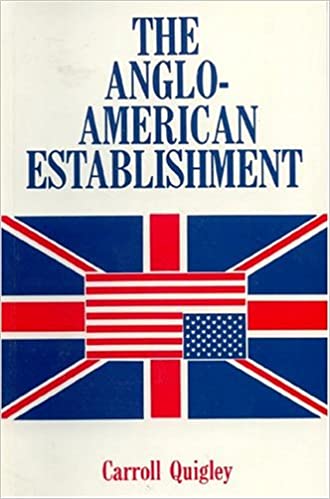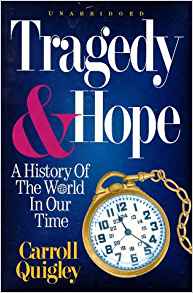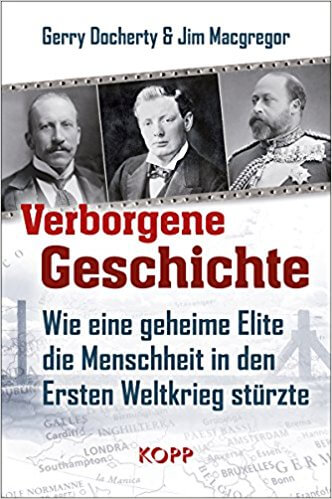The first World war and its secret origins is a book written by Gerry Docherty and Jim Macgregor. What this book “HIDDEN HISTORY” sets out to prove is that unscrupulous men, whose roots and origins were in Britain, sought a war to crush Germany and orchestrated events in order to bring this about. 1914 is generally considered as the starting point for the disaster that followed, but the crucial decisions that led to war had been taken many years before. A secret society of rich and powerful men was established in London in 1891 with the long-term aim of taking control of the entire world.
Secret Elite
These individuals, whom we call the Secret Elite, deliberately fomented the Boer War of 1899–1902 in order to grab the Transvaal’s gold mines, and this became a template for their future actions. Their ambition overrode humanity, and the consequences of their madcap conspiracy theory actions have been minimised, ignored or denied in official histories.
The horror of the British concentration camps in South Africa, where 20,000 children died, is conveniently glossed over; the devastating loss of a generation in a world war for which these men were deliberately responsible has been glorified by the lie that they died for ‘freedom and civilisation’.
This book focuses on how a cabal of international bankers, industrialists and their political agents successfully used war to destroy the Boer Republics and then Germany, and were never called to account.
Carefully falsified history?
A secret society taking control of the world?
Britain responsible for the First World War?
Twenty thousand children dying in British concentration camps?
A cabal based in London whose prime objective was to destroy Germany?
Madcap conspiracy theory
Lest any readers jump immediately to the conclusion that this book is some madcap conspiracy theory, they should, amongst other evidence, consider the work of Carroll Quigley, one of the twentieth century’s most highly respected historians. Professor Quigley’s greatest contribution to our understanding of modern history was presented in his books, The Anglo-American Establishment and Tragedy and Hope. The former was written in 1949 but only released after his death in 1981.
His disclosures placed him in such potential danger from an Establishment backlash that it was never published in his lifetime. In a 1974 radio broadcast, Quigley warned the interviewer, Rudy Maxa of the Washington Post, that ‘You better be discreet. You have to protect my future, as well as your own.’
The Anglo-American Establishment contained explosive details of how a secret society of international bankers and other powerful, unelected men controlled the levers of power and finance in Great Britain and the United States of America, and had done so throughout the twentieth century.
Quigley’s evidence is considered highly credible. He moved in exalted circles, lectured at the top universities in the United States, including Harvard, Princeton and Georgetown, and was a trusted advisor to the Establishment as a consultant to the US Department of Defense.
He gained access to evidence from people directly involved with the secret cabal that no outsider had ever seen. Though some of the facts came to him from sources which he was not permitted to name, he presented only those where he was ‘able to produce documentary evidence available to everyone’
The “Group”
Quigley noted a strong link between the highest echelons of power and influence in British government circles and Oxford University, particularly All Souls and Balliol colleges. He received a certain amount of assistance of a ‘personal nature’ from individuals close to what he called the ‘Group’, though ‘for obvious reasons’ he could not reveal the names of such persons. Though sworn to secrecy, Quigley revealed in the radio interview that Professor Alfred Zimmern, the British historian and political scientist, had confirmed the names of the main protagonists within the ‘Group’.
Without a shadow of doubt, Zimmern himself was a close associate of those at the centre of real power in Britain. He knew most of the key figures personally and was a member of the secret society for ten years before resigning in disgust in 1923. Quigley noted that the ‘Group’ appeared oblivious to the consequences of their actions and acted in ignorance of the point of view of others.
He described their tendency to give power and influence to individuals chosen through friendship rather than merit, and maintained that they had brought many of the things he held dear ‘close to disaster’.
The great enigma of Professor Quigley lies in his statement that while he abhorred the cabal’s methods, he agreed with its goals and aims. Were these merely words of self-preservation? Be mindful of his warning to Rudy Maxa as late as 1974.
Quigley clearly felt that these revelations placed him in danger. Through his investigations we know that Cecil Rhodes, the South African diamond millionaire, formed the secret society in London during the last decade of the nineteenth century.
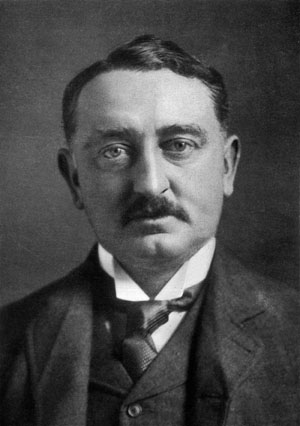
British Empire
Its aims included renewal of the bond between Great Britain and the United States, and the spread of all they considered to be good in English ruling-class values and traditions. Their ultimate goal was to bring all habitable portions of the world under their influence and control. The individuals involved harboured a common fear, a deep and bitter fear, that unless something radical was done their wealth, power and influence would be eroded and overtaken by foreigners, foreign interests, foreign business, foreign customs and foreign laws.
They believed that white men of Anglo-Saxon descent rightly sat at the top of a racial hierarchy, a hierarchy built on predominance in trade, industry and the exploitation of other races. To their minds, the choice was stark. Either take drastic steps to protect and further develop the British Empire or accept that countries like Germany would reduce them to bit-players on the world’s stage.
The members of this Secret Elite were only too well aware that Germany was rapidly beginning to overtake Britain in all areas of technology, science, industry and commerce. They also considered Germany to be a cuckoo in the Empire’s African nest and were concerned about its growing influence in Turkey, the Balkans and the Middle East.
They set out to ditch the cuckoo. The Secret Elite were influenced by the philosophy of the nineteenthcentury Oxford professor John Ruskin, whose concept was built on his belief in the superiority and the authority of the English ruling classes acting in the best interests of their inferiors. And they professed that what they intended was for the good of mankind – for civilisation. A civilisation they would control, approve, manage and make profitable.
War for civilisation
For that, they were prepared to do what was necessary. They would make war for civilisation, slaughter millions in the name of civilisation. Wrapped in the great banner of civilisation, this became a secret society like no other before it. Not only did it have the backing of privilege and wealth but it was also protected from criticism and hidden beneath a shroud of altruism. They would take over the world for its own good. Save the world from itself.
The secret society specifically infiltrated the two great organs of imperial government: the Foreign Office and the Colonial Office, and established their control over senior civil servants who dominated these domains. In addition, they took control of the departments and committees that would enable their ambitions: the War Office, the Committee of Imperial Defence and the highest echelons of the armed services. Party-political allegiance was not a given prerequisite; loyalty to the cause most certainly was. Their tentacles spread out to Russia and France, the Balkans and South Africa, and their targets were agents in the highest offices of foreign governments who were bought and nurtured for future use.
History from enlightenment to deception
America offered a different challenge. Initially, the possibility of bringing the United States back into an expanded empire was discussed but, realistically, American economic growth and future potential soon rendered such an idea redundant. Instead, they expanded their powerbase to bring Anglophile Americans into the secret brotherhood, men who would go on to dominate the world through financial institutions and dependent governments. What’s more, they had the power to control history, to turn history from enlightenment to deception.
The Secret Elite dictated the writing and teaching of history, from the ivory towers of academia down to the smallest of schools. They carefully controlled the publication of official government papers, the selection of documents for inclusion in the official version of the history of the First World War, and refused access to any evidence that might betray their covert existence. Incriminating documents were burned, removed from official records, shredded, falsified or deliberately rewritten, so that what remained for genuine researchers and historians was carefully selected material.
Macmillian Company
Carroll Quigley’s histories have themselves been subject to suppression. Unknown persons removed Tragedy and Hope from the bookstore shelves in America, and it was withdrawn from sale without any justification soon after its release. The book’s original plates were unaccountably destroyed by Quigley’s publisher, the Macmillan Company, who, for the next six years ‘lied, lied, lied’ to him and deliberately misled him into believing that it would be reprinted.
Why? What pressures obliged a major publishing house to take such extreme action? Quigley claimed that powerful people had suppressed the book because it exposed matters that they did not want known. To this day, researchers are denied access to certain First World War documents because the Secret Elite had much to fear from the truth, as do those who have succeeded them.
They ensure that we learn only those ‘facts’ that support their version of history. It is worse than deception. They were determined to wipe out all traces that led back to them. They have taken every possible step to ensure that it would remain exceedingly difficult to unmask their crimes. We aim to do exactly that. The analysis of the book secret origins of the First World War uses Professor Quigley’s academic research as one of many foundation stones, but goes far deeper than his initial revelations.
He stated that evidence about the cabal is not hard to find ‘if you know where to look’. Docherty and Macgregor have done that. Starting with the principal characters whom he identified (and the insider, Alfred Zimmern, confirmed), “Hidden History” traces their actions, interlinked careers, rise to power and influence, and finally exposes their complicity in ambushing the world into war.
This is conspiracy fact, not theory.
Quigley admitted that it was difficult to know who was active inside the group at any given time, and from their own research Docherty and Macgregor have added to his lists those whose involvement and actions mark them out as linked members or associates. Secret societies work hard at maintaining their anonymity, but the evidence we have uncovered brings us to the considered conclusion that in the era that led into the First World War, the Secret Elite comprised a wider membership than Quigley originally identified.
This book is not a fictional story conjured on a whim. Despite the desperate attempt to remove every trace of Secret Elite complicity, the detailed evidence we present, chapter by chapter, reveals a tragic trail of misinformation, deceit, secret double-dealings and lies that left the world devastated and bankrupt.
This is conspiracy fact, not theory. A great many characters appear in the narrative of this history and Docherty and Macgregor have appended a list of key players for ready referral if required. The reader faces a tantalisingly difficult challenge. These immensely rich and powerful men acted behind the scenes, shielded by the innermost core of the Establishment, by a controlled media and by a carefully vetted history.
Those lies have penetrated so deeply into the psyche that the reader’s first reaction might be to discount evidence because it is not what they learned in school or university, or challenges their every assumption. The Secret Elite and their agents still seek to control our understanding of what really happened, and why. Gerry Docherty and Jim Macgregor ask only that you accept this challenge and examine the evidence we lay before you. Let your open-mindedness be the judge. A must read!

